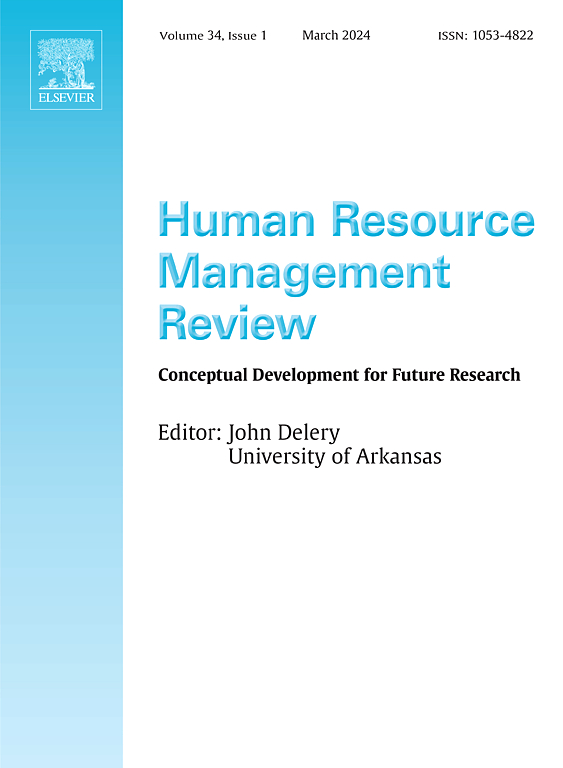Understanding how agile teams reach effectiveness: A systematic literature review to take stock and look forward
IF 13
1区 管理学
Q1 MANAGEMENT
引用次数: 0
Abstract
In a global environment that continues to challenge organizations' responsiveness, agile teams have proliferated in diverse sectors of practice and streams of research. However, scholars also indicate that agile teams, their way of working, and how they achieve effectiveness seem to be an undertheorized phenomenon. To better account for and understand how agile teams reach effectiveness, we aim to compile, organize, and synthesize the agile team literature using the IMOI model as a theoretical anchoring point. We systematically reviewed 74 studies on agile teams and identified their key input, mediating, and outcome factors. This effort has, consequently, allowed us to identify crucial theoretical and methodological gaps in the understanding of how agile teams manage uncertainty and what is needed to close these gaps. Furthermore, we identified three themes relevant to all teams dealing with the management of uncertainty.
了解敏捷团队如何达到效率:系统的文献回顾,以进行评估和展望
在不断挑战组织响应能力的全球环境中,敏捷团队在不同的实践部门和研究流中激增。然而,学者们也指出,敏捷团队,他们的工作方式,以及他们如何实现效率似乎是一个未被理论化的现象。为了更好地解释和理解敏捷团队是如何达到效率的,我们的目标是使用IMOI模型作为理论锚点来编译、组织和综合敏捷团队文献。我们系统地回顾了74项关于敏捷团队的研究,并确定了他们的关键输入、中介和结果因素。因此,这项工作使我们能够识别出在理解敏捷团队如何管理不确定性以及需要什么来缩小这些差距方面的关键理论和方法差距。此外,我们确定了与处理不确定性管理的所有团队相关的三个主题。
本文章由计算机程序翻译,如有差异,请以英文原文为准。
求助全文
约1分钟内获得全文
求助全文
来源期刊

Human Resource Management Review
MANAGEMENT-
CiteScore
20.20
自引率
7.00%
发文量
0
审稿时长
48 days
期刊介绍:
The Human Resource Management Review (HRMR) is a quarterly academic journal dedicated to publishing scholarly conceptual and theoretical articles in the field of human resource management and related disciplines such as industrial/organizational psychology, human capital, labor relations, and organizational behavior. HRMR encourages manuscripts that address micro-, macro-, or multi-level phenomena concerning the function and processes of human resource management. The journal publishes articles that offer fresh insights to inspire future theory development and empirical research. Critical evaluations of existing concepts, theories, models, and frameworks are also encouraged, as well as quantitative meta-analytical reviews that contribute to conceptual and theoretical understanding.
Subject areas appropriate for HRMR include (but are not limited to) Strategic Human Resource Management, International Human Resource Management, the nature and role of the human resource function in organizations, any specific Human Resource function or activity (e.g., Job Analysis, Job Design, Workforce Planning, Recruitment, Selection and Placement, Performance and Talent Management, Reward Systems, Training, Development, Careers, Safety and Health, Diversity, Fairness, Discrimination, Employment Law, Employee Relations, Labor Relations, Workforce Metrics, HR Analytics, HRM and Technology, Social issues and HRM, Separation and Retention), topics that influence or are influenced by human resource management activities (e.g., Climate, Culture, Change, Leadership and Power, Groups and Teams, Employee Attitudes and Behavior, Individual, team, and/or Organizational Performance), and HRM Research Methods.
 求助内容:
求助内容: 应助结果提醒方式:
应助结果提醒方式:


